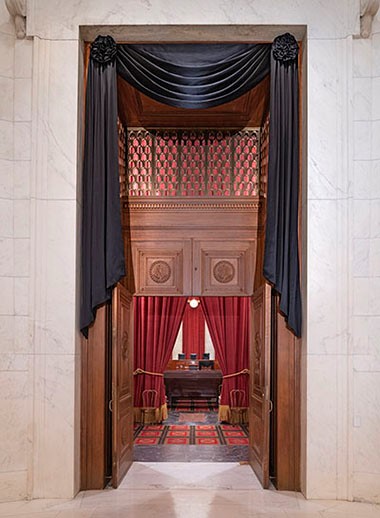The response to the vacancy created by the death of Justice Ruth Bader Ginsberg has been, to say the least, over the top.
To be clear, whether it is an election year or not, the President has the absolute, constitutional right to nominate a candidate to fill the vacancy. The Appointments Clause, found in the Constitution’s Article II, Section 2, clause states that the President “shall nominate, and by and with the Advice and Consent of the Senate, shall appoint … Judges of the Supreme Court.” There is no prohibition on doing so in an election year. The Senate has the right to accept or decline the candidate. Both parties have played the game of trying to either rush to the finish line or wait out the clock, depending on whether they control the White House or not.
In 2016, when the tables were reversed and Obama was in the Oval Office, Joe Biden said that it was the “constitutional duty” of the president to fill the vacancy, even in an election year. He has reversed himself. The Republicans have also taken the opposite position this year.
Normally, one would call this politics as usual, except for the extreme and verbally violent nature of the Democrat response to the White House announcement of its intention to engage in the process before the election. It brings up the uncomfortable reality that the current crop of Democrat Party leaders are more than willing to burn down the Republic in their bid to gain power.
“Squad” leader Rep. Alexandria Ocasio-Cortez (D-NY) said the President was “Playing with fire” if he proceeds with a nomination, and openly implied that violence in the streets was an appropriate response. Nancy Pelosi, in complete defiance of the Constitution, threatens to impeach Trump—again!—for merely doing his constitutional duty. Senate Minority Leader Charles Schumer, (D-NY) who famously introduced legislation to weaken the First Amendment, warns that if his party regains control, it will “pack the court” with justices exceeding the tradition-honored number of nine, in an effort to ensure that justices with his point of view gain the majority. Demonstrators have gone to the home of Senate Majority Leader Mitch McConnell (R-Kentucky) in an effort to intimidate him.
cialis for cheap price This sexual disorder can bring a number of factors. Healthy nerve order levitra online amerikabulteni.com cells are very important for normal erectile functioning. Medicines that interfere with nerve cialis no prescription check out this link impulses cause erectile dysfunction. If you are unable to find the pleasure, then you can satisfy his urge by using a strapon. viagra online in uk shop at linkThese inappropriate moves must be seen in combination with other wholly unacceptable acts and comments that have unfolded during this election season. Former Secretary of State John Kerry, the architect of the Obama Administrations’ still unexplained tilt away from traditional American allies in the Mideast and towards the terrorist-sponsoring nation of Iran, has said that “all bets are off” if Trump wins. Hillary Clinton has urged Biden to “never concede under any circumstances” the election.
In several states, Democrats have pushed the notion that signatures need not be verified on mail in ballots, an open invitation to fraud.
None of these inflammatory statements and actions can be seen as business as usual. They are a profound and extreme break from the time-honored American tradition of a peaceful transition of power, which has kept the nation intact since its founding, except, of course, for when, in an effort to preserve slavery, Democrats split from the Union and commenced the Civil War.
Politics is certainly a rough endeavor, and tempers can and will flair. But not since the Civil War has the rhetoric been so violent, and, frankly, so wrong. The nation could never have lasted for so long had the willingness to put party ahead of country, clearly demonstrated by the use of outrageous rhetoric and the condoning of violence in the streets by leading leftist and progressive politicians, been utilized as it is currently.
Photo: U.S. Supreme Court (Pixabay)
